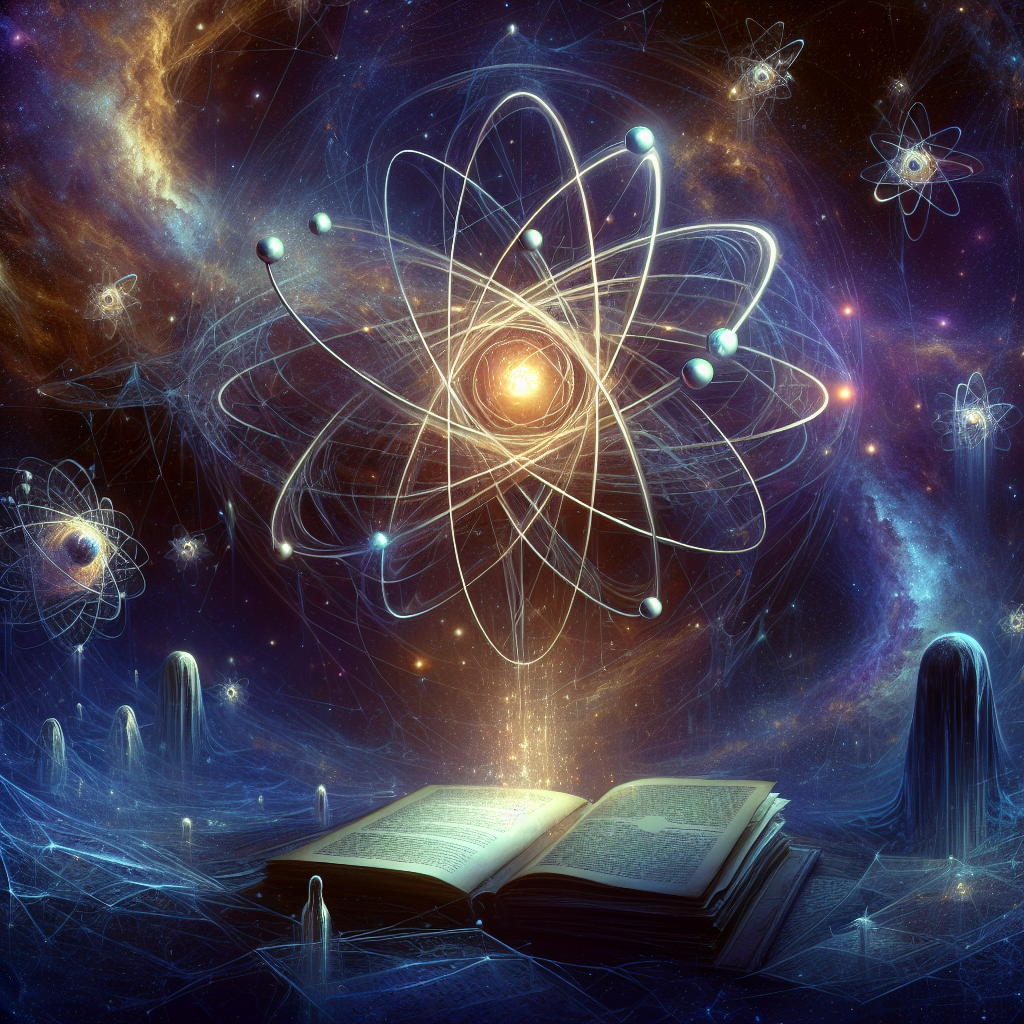The concept of atoms stands as a central pillar of modern science, almost an unquestionable truth to those of us who have grown up with periodic tables and electron microscopes. However, following a recent deep dive into the historical debate surrounding atomic theory, I found myself reflecting on some nagging doubts. Is it possible that our well-cemented understanding of atoms could eventually crumble? After all, history has shown us the precariousness of ‘facts’ once thought immutable.
The Long Road to Atomic Acceptance
When thinking about atoms, what’s fascinating is the path to their broad acceptance—the countless centuries of scientists debating, experimenting, and refining ideas. From the early musings of Greek philosophers like Democritus to more empirical endeavors by scientists such as Dalton and Rutherford, the progression was tumultuous and fraught with skepticism. This history shows how scientific models evolve, mirroring our increasing interpretive power and understanding of the universe.
It was during my exploration of this historical narrative that a thought struck me: even if a massive consensus supports a concept today, future discoveries could unravel it. What if, centuries from now, science determines that atoms, as we understand them, aren’t the smallest constituents of matter? Or worse, what if they are interpreted as mere conveniences in an even grander, more compelling theory?
Endless Curiosity: Science’s Double-Edged Sword
The absolute beauty of science lies in its relentless pursuit of understanding and willingness to embrace error as a step towards truth. However, this is also its curse. We might sometimes operate on constructs that, eventually, prove illusory. This inherent mutability makes me cautious about latching onto any scientific idea too tightly. Yes, atoms have been “seen” and manipulated thanks to technological advancements, yet this doesn’t exempt them from future waiver under new scientific scrutiny.
I can’t help but ponder: what does this skepticism mean for our ongoing scientific endeavors? Does it render our work obsolete? Throughout history, many brilliant minds invested their lives battling over ideas now seen as archaic curiosities. If atoms were dismissed tomorrow, would that unravel the multitude of derived sciences, from chemistry to quantum mechanics? My reflection settles on a contemplative middle ground; the answer might be both yes and no. Science seldom discards entire paradigms without reinterpreting and incorporating their components.
Atoms: Cornerstones or Temporary Scaffolding?
Let’s consider these ramblings not as skepticism towards atoms but a reminder of the scientific journey’s nature. Our belief in atoms rests on the structure they offer to our understanding, like scaffolding to a growing architectural masterpiece. This includes their instrumental role in explaining behaviors of matter and energy, leading to consequential breakthroughs like chemical synthesis, the development of semiconductors, and the very devices through which you read this narrative.
My skepticism isn’t rooted in a denial of atoms’ existence; rather, it’s a recognition of the breadth of possibilities science could uncover. Suppose alternative models emerge that perceive atoms as transient states of more complex microscopic reality? Wouldn’t that only deepen our appreciation? After all, every significant discovery opens doors to new questions.
Embracing the Fragility of Certainty
We hold fast to scientific models because they are coherent and allow our society to evolve technologically and philosophically. Skepticism does not detract from their utility or the elegance they reveal about our universe. Instead, it propels us towards an expanded quest for knowledge, reminding us to keep our minds pliable, to seek and adapt beyond current paradigms.
In this spirit, journey with me—not into doubt, but curiosity. What else might we learn if history tells us anything? Even hard-earned consensus, like the reality of atoms, could evolve. To explore, question, challenge, and grow is, after all, the scientific spirit. Shouldn’t that mean embracing both its certainties and its uncertainties?
Reflecting on Our Scientific Odyssey
If we’re honest, some anxiety lingers when contemplating the fragility of scientific frameworks. Yet, it’s their very flexibility that positions science as a beacon of human progress. This oscillation between belief and skepticism, certainty and doubt, enriches our quest for authentic understanding.
So, when we next ponder the universe’s mysteries, let’s do so with an open-eyed expectation, cherishing both the scaffolding and the edifices it supports. Our knowledge of atoms may be challenged or refined, but the journey of discovery itself remains the enduring masterpiece of human endeavor.
As we continue to unravel the universe’s secrets, may we remain ever curious, steadfast, and inspired by the possibilities that lie just beyond the horizon.
